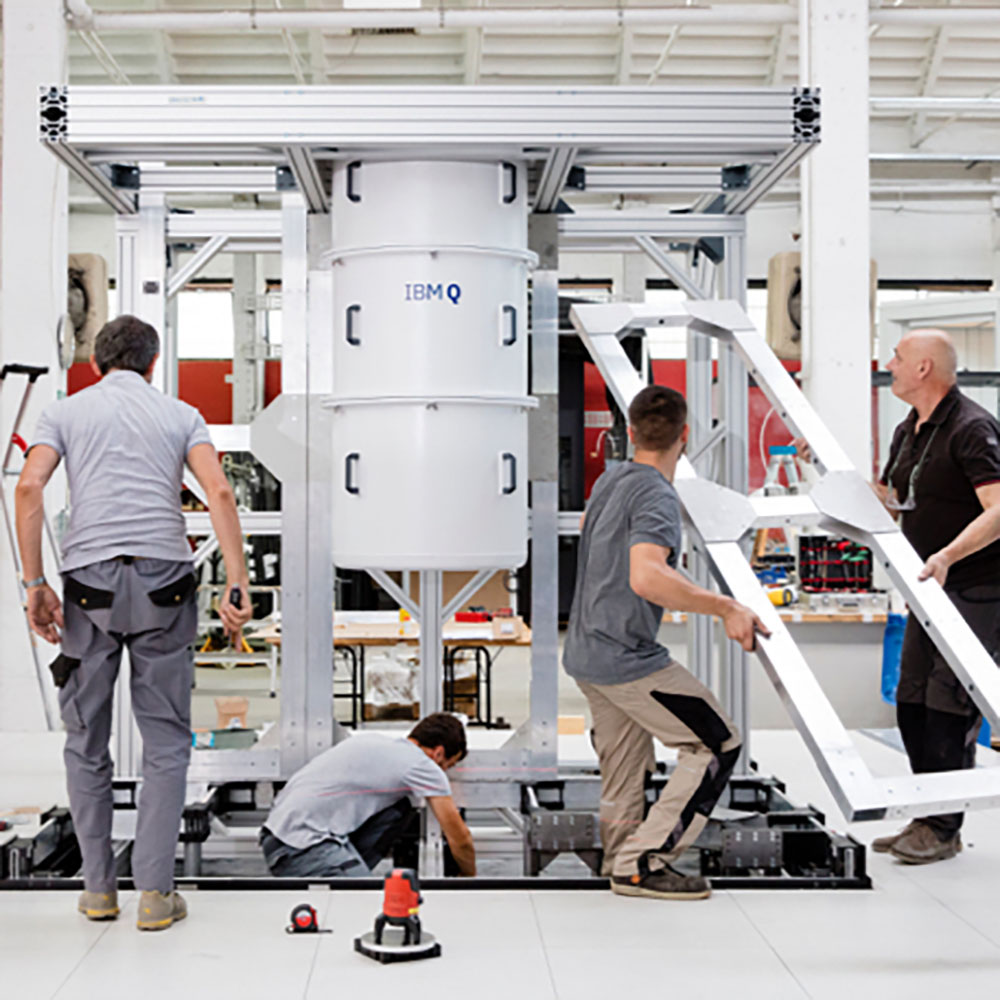IBM To Build Europe’s First Quantum Computer In Germany

IBM to build Q System One quantum computer at Fraunhofer Institute in Stuttgart, allowing European researchers local access the tech
IBM is to build Europe’s first quantum computer in Germany, allowing companies to access the experimental technology without needing to send sensitive data across the Atlantic.
IBM said it would build one of its Q System One machines at the state-backed Fraunhofer Institute near Stuttgart from early 2021, with research labs to be set up around it.
Quantum computers make use of quantum-mechanical phenomena as the basis for systems that are expected to eventually far surpass the performance of classical computers, leading to fundamental shifts in areas such as cryptography.
While they are still at the experimental stage, the computers are functional and organisations have begun making use of them in order to be prepared once the technology becomes more practical to use.

Q System One
IBM has been offering researchers access to quantum computers since 2016 via the cloud, and its Q System One is based on a fourth-generation processor with 20 qubits.
Qubits are analogous to bits in classical computing, but can hold multiple states, rather than only 0 or 1.
IBM calls the Q System One the world’s first “commercial” quantum computer, though it is still used primarily for research purposes.
Last year researchers at Daimler, maker of Mercedes-Benz cars, used IBM’s quantum computers to help design next-generation lithium batteries for electric vehicles by simulating battery cell chemistry.
European ‘catalyst’
“Quantum computing has the potential to analyse the complex systems in business and industry, to unravel molecular and chemical interactions, to solve complicated optimisation problems and to make artificial intelligence significantly more powerful,” said Fraunhofer president Professor Reimund Neugebauer.
Martin Jetter, chairman of IBM Europe, said an EU-based quantum computer could be “a major catalyst” for Europe’s innovation landscape and research capabilities and would “help shape the future of our European society”.
The German government has pledged 650 million euros (£580m of investment into quantum computing and said the technology is relevant to security policy in areas such as cryptography.
Honeywell said earlier this month it is planning to make a powerful quantum computer available to researchers by June of this year, with JP Morgan Chase as an initial customer.
Major companies such as Google and Microsoft are also working on quantum computers, along with numerous start-ups.